Bargain Bard: A Midsummer Night’s Dream
For 25 years, the Free For All has been serving up Shakespeare to the city's delighted, theater-loving masses
By Randy Shulman on September 10, 2015 @RandyShulman

In 1991, Falstaff wrought havoc at Carter Barron.
Merry havoc, naturally, as the show was Shakespeare’s ribald comedy, The Merry Wives of Windsor. Michael Kahn, then the new artistic captain of The Shakespeare Theatre at the Folger, had been tasked with concocting an event that, like its counterpart in New York, provided full Shakespearean productions to the masses. Absolutely free.
Twenty-five years later — not to mention one Lear, two Hamlets, and three Much Ados — the Free for All has evolved into a Washington institution, simultaneously heralding the end of summer and launching the city’s fall theater season.
In 2009, Kahn moved the event from the grassy splendor of the Carter Barron Amphitheatre to the elegant confines of Sidney Harman Hall. Audiences could now now experience fuller, richer productions in an even more intimate setting, one without the roar of National-bound planes overhead. And this year’s revival of Midsummer Night’s Dream, director Ethan McSweeney’s surreal romp complete with riotous mudfight, magical floating piano, and a rather plucky Puck, is a sure-fire delight. To help compensate for the lack of an outdoor milieu, the theater is for the first time holding a day-long festival at the Harman on Saturday, Sept. 12.
“There’s downstairs tours of the costume room and wig room,” says Kahn. “Backstage tours that reveal how the show works. There are two performances of the Mini-Midsummer, an hour-long adaptation of the show for young kids. Games, facepainting, quizzes, a variety of things.” There will even be two showings of Midsummer that day — a matinee and an evening show.
On the phone from his New York apartment, Kahn reflected on the early years of the Free for All and the importance of serving up free Shakespeare, not just for the audiences — but for the artists themselves.
METRO WEEKLY: What was it that inspired you to start the Free for All?
MICHAEL KAHN: I got my start as a Shakespeare director from Joe Papp — I had only done very avant garde off-Broadway plays. He asked me if I would do Measure for Measure in Central Park. And that began this part of my career. When I was hired at the Folger, one of the things that was asked of me was whether it would be possible to do free Shakespeare in Washington. I said, “Of course. I would really, really love to do it if we could find the resources and the place.”
We found Carter Barron, which, at that time, was not being used. It had been previously used a lot by the Met Opera and the ballet but after the riots, after the assassination of Dr. King, people didn’t want to go to that neighborhood. So the theater was pretty much in disuse. When we said we would like to do free Shakespeare there, there was quite a lot that had to be done with it. The dressing rooms painted, finding lighting equipment, refurbishing the whole thing.
I was so surprised and pleased by the enthusiasm of Washington for Shakespeare. I felt that it was for everybody, about everybody, and everybody needed to see it. The Folger was so small and I had known what an influence the free Shakespeare had in New York City, with audiences getting to see that work for the first time. Kids, people who couldn’t afford going to the theater were able to do it. All of those things made me want to replicate that. And so we did.
MW: Your space at the Folger was tiny. Carter Barron, massive by comparison. It was less a matter of transporting a production than reinventing it for a much larger space.
KAHN: Right. We went from playing 240 people at the Folger to 4,000 people at Carter Barron. We had to not only stretch the scenery, but also had to rework the production for that size stage.
MW: Were there issues with performing outdoors?
KAHN: The first time it rained, we had to stop everything and put the mics in plastic wrap. We got smarter about that as we went along. But every night when we opened the gates, it was such a wonderful feeling to watch all those people rushing in. It made you remember why you wanted to create theater.

MW: How so?
KAHN: At the end of every season, we’d be tired — tired of the amount of work we were doing, tired of talking about budgets and all the problems that making theater has. And we’d go out there and all of a sudden we remembered why we did it in the first place. The actors loved it. There was a little barbecue backstage and they cooked. It was just a wonderful experience. It really was, “Oh, of course, this is why we do theater because these audiences really, really, really want to be here.”
MW: How do you choose what production makes it to the Free for All?
KAHN: It’s usually a production we’ve done two or three years ago. Each season, as I see the productions and before they close, I think, “Oh, we should do this for the Free for All.” And so we save it. I make the decision based on the quality of the production and the fact that maybe we haven’t done it in Free for All. That’s about it.
MW: You’ve done quite few Much Ado‘s and All’s Well‘s. Do you avoid the lesser-known works?
KAHN: No, I don’t avoid them. And quite frankly, because it’s free, I really don’t care. I want an audience there, but I’m not gonna get any money from the audience, so I just want them to have a really good experience. If I’d been able to save King John or Timon of Athens, I would have, but I think there was another show, each of those years, that I felt fit better into Carter Barron. Sometimes scenically, a show doesn’t work. You couldn’t have scenery that moved. There was no fly space, there was no wing space. So basically the plays that had unit sets were the ones that worked best. Now we can bring anything in.
MW: Because you’re now in the Harman.
KAHN: Yes. There was a lot of distress when we moved. So many people had made going out to Carter Barron and having a picnic a tradition. There were a lot of people who were disappointed and wrote to me. I understood it completely, but there were really several reasons why we moved. One of them was when we moved to the Harman, I wanted people to know we were there and you could get to us really easily. There was a Metro Station across the street. So that was one thing.
Secondly, we never had to worry about rain, so we never had rained-out dates where people had stood in line for tickets and found out that it started to rain just before the show and we had to cancel. And there weren’t any mosquitoes. We also wanted to be able to do matinees for kids. And you couldn’t do matinees out at Carter Barron because sometimes it was 98 degrees and there was no sunshade, no shelter. And the Carter Barron administration became rather difficult in saying what dates they would give us rather than us saying, “These are the dates we can do it,” which had always been how it was worked out. We helped make Carter Barron popular and they began to see how they could monetize the space. They began to say “We’ve only got these weeks, and we’ve only got these weeks.” They didn’t fit in with our schedule very well.
Now, we just opened Midsummer Night’s Dream and there’s 750 people in there every night having a wonderful time.
MW: While it’s fun to experience Shakespeare in an outdoor setting, this way people can enjoy it in comfort and more intimately.
KAHN: And there are no mosquitos. And now audiences can really hear it. There are no airplanes.
MW: I’d never put it past you to sneak an airplane into a production.
KAHN: [Laughs.] Well, I would do that. And I would do it at exactly the right time.
The 25th Anniversary Free for All presents A Midsummer Night’s Dream through Sunday, Sept. 13. Tickets are dispensed through a daily random lottery. The 25th Anniversary Festival day-long open house takes place Saturday, Sept. 12 from 10 a.m. to 5 p.m. is free and open to the public. Full schedule of events at the theatre’s website. All events take place at the Harman, 610 F St. NW. Visit shakespearetheatre.org to enter the daily lottery or for a full schedule of Festival events.
The Folger’s ‘Romeo + Juliet’ Has Great Wow-Factor
Packed with strong performances, The Folger's "Romeo + Juliet" is a buzzy, smart interpretation of this oft-told tale.
By Kate Wingfield on October 23, 2024
A super-cute, tech-savvy update of William Shakespeare's most famous lovers' tragedy, The Folger's Romeo + Juliet has a nice wow-factor. Not only is it literally just the ticket for a Shakespeare-curious Gen Z'er, but it still largely delivers for the diehards in need of a classical fix.
In fact, setting the star-crossed teenagers in the very thick of the present day is multi-level inspired. It's exceedingly fun to watch director Raymond O. Caldwell and his team so creatively integrate all manner of modern life and its attendant frenzies into the story, but it also brings a much-needed logic.
The Renovated Folger Shakespeare Library is a D.C. Showpiece
After a major, multi-year renovation, the Folger Shakespeare Library is now able to truly showcase its vast collection.
By Doug Rule on October 12, 2024 @ruleonwriting
READ THIS STORY IN THE MAGAZINE
"This printing press," says Greg Prickman of the Folger Shakespeare Library. "We had it built for the space, so it's not an artifact. People can handle it, and it helps us tell the story of the book."
That functioning replica of an early printing press is just one of the more novel and unexpected items currently on display at the recently reopened and renovated Folger.
"It absolutely works," continues Prickman, the institution's director of collections and exhibitions, who took me on a recent tour of the space. "And we're able to show people very tangibly what creating a book actually looked like physically -- the tiny little pieces of type, all of these lines, and individual letters. And it's backwards. So you have to learn how to create lines of text backwards."
Support Metro Weekly’s Journalism
These are challenging times for news organizations. And yet it’s crucial we stay active and provide vital resources and information to both our local readers and the world. So won’t you please take a moment and consider supporting Metro Weekly with a membership? For as little as $5 a month, you can help ensure Metro Weekly magazine and MetroWeekly.com remain free, viable resources as we provide the best, most diverse, culturally-resonant LGBTQ coverage in both the D.C. region and around the world. Memberships come with exclusive perks and discounts, your own personal digital delivery of each week’s magazine (and an archive), access to our Member's Lounge when it launches this fall, and exclusive members-only items like Metro Weekly Membership Mugs and Tote Bags! Check out all our membership levels here and please join us today!
The Magazine
-
Most Popular
 Sarah McBride Criticized for Complying with Restroom Ban
Sarah McBride Criticized for Complying with Restroom Ban  Man Sentenced to Life for Murder of Gay Jewish Student
Man Sentenced to Life for Murder of Gay Jewish Student  Trump Taps Anti-LGBTQ Matt Gaetz for Attorney General
Trump Taps Anti-LGBTQ Matt Gaetz for Attorney General  Gay Adult Film Star Blasted for Hailing Trump's Victory
Gay Adult Film Star Blasted for Hailing Trump's Victory  Kierra Johnson: To Fight Trump, We Must “Lean Into Community”
Kierra Johnson: To Fight Trump, We Must “Lean Into Community”  A Grim Report Details Anti-Trans Violence in America
A Grim Report Details Anti-Trans Violence in America  Same-Sex Kiss Cut from 'Gladiator II'
Same-Sex Kiss Cut from 'Gladiator II'  John Leguizamo's America
John Leguizamo's America  Speaker Mike Johnson Imposes a Trans Restroom Ban
Speaker Mike Johnson Imposes a Trans Restroom Ban  The WNO's 'Macbeth' is a Soaring Operatic High
The WNO's 'Macbeth' is a Soaring Operatic High
 Sarah McBride Criticized for Complying with Restroom Ban
Sarah McBride Criticized for Complying with Restroom Ban  Man Sentenced to Life for Murder of Gay Jewish Student
Man Sentenced to Life for Murder of Gay Jewish Student  Speaker Mike Johnson Imposes a Trans Restroom Ban
Speaker Mike Johnson Imposes a Trans Restroom Ban  Gay People Targeted with 'Re-Education Camp' Texts
Gay People Targeted with 'Re-Education Camp' Texts  A Grim Report Details Anti-Trans Violence in America
A Grim Report Details Anti-Trans Violence in America  Nancy Mace Wants to Ban Sarah McBride from Capitol Restrooms
Nancy Mace Wants to Ban Sarah McBride from Capitol Restrooms  Staten Island St. Patrick's Day Parade to Allow LGBTQ Groups
Staten Island St. Patrick's Day Parade to Allow LGBTQ Groups  LaMelo Ball Fined $100,000 by NBA for Anti-Gay Slur
LaMelo Ball Fined $100,000 by NBA for Anti-Gay Slur  Rodrigo Heng-Lehtinen on “The New Chapter of Our Resistance”
Rodrigo Heng-Lehtinen on “The New Chapter of Our Resistance”  Same-Sex Kiss Cut from 'Gladiator II'
Same-Sex Kiss Cut from 'Gladiator II'
Scene
Metro Weekly
Washington's LGBTQ Magazine
P.O. Box 11559
Washington, DC 20008 (202) 638-6830
About Us pageFollow Us:
· Facebook
· Twitter
· Flipboard
· YouTube
· Instagram
· RSS News | RSS SceneArchives
Copyright ©2024 Jansi LLC.




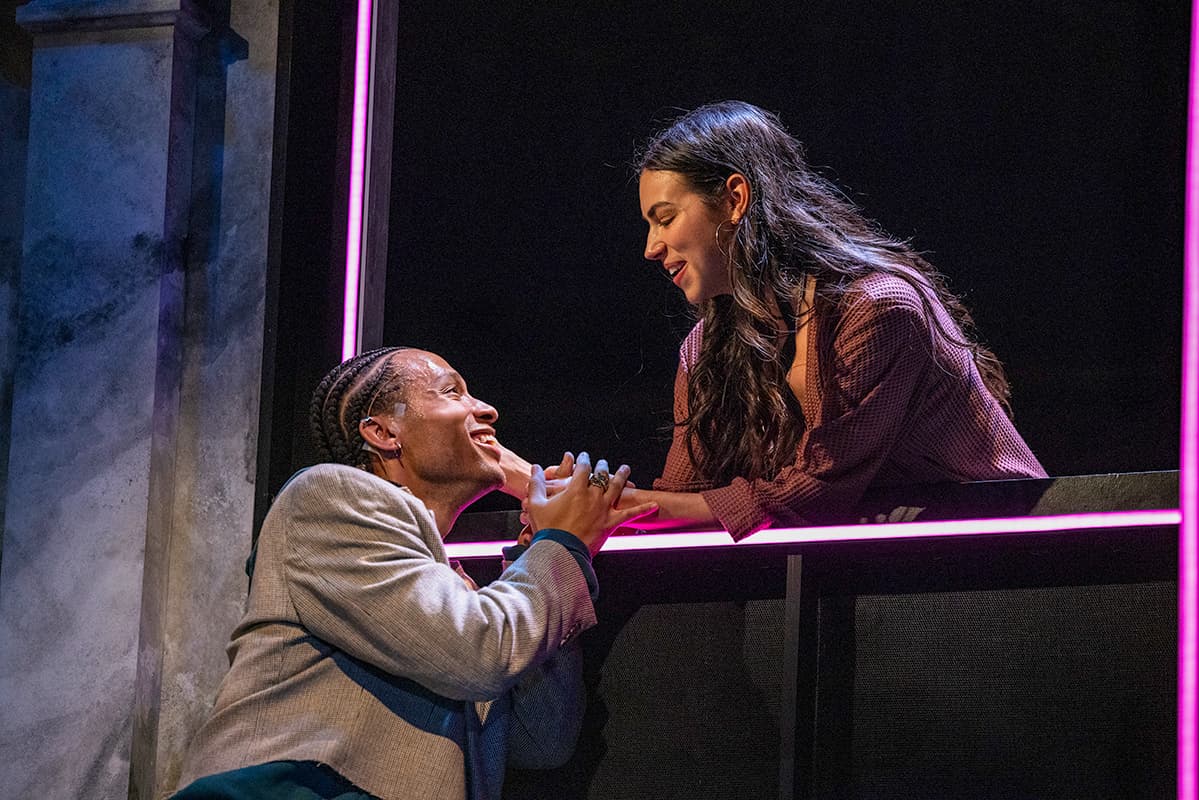
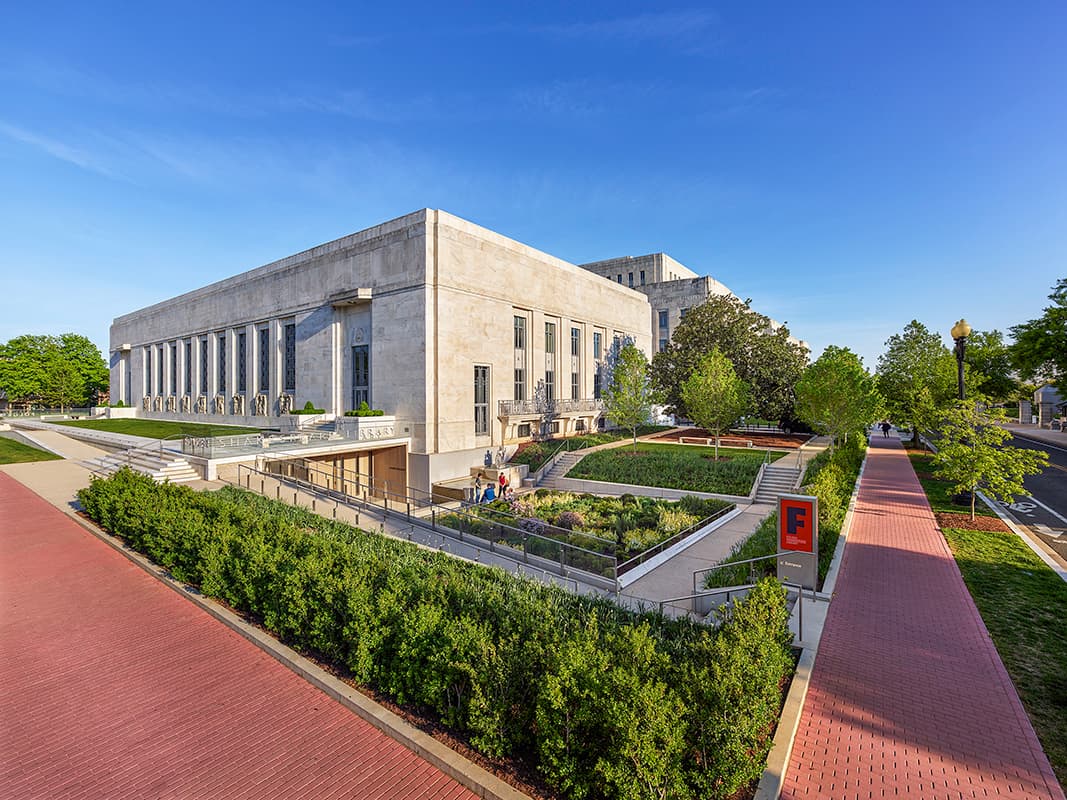
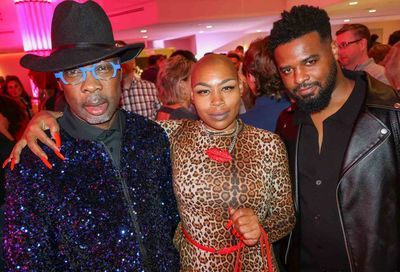
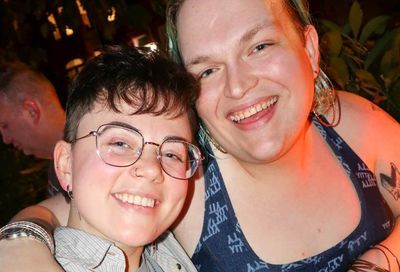
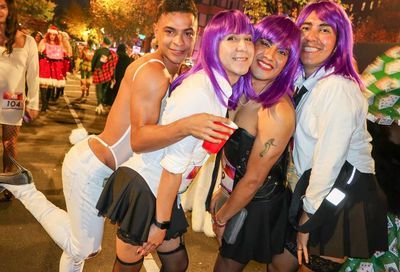
You must be logged in to post a comment.